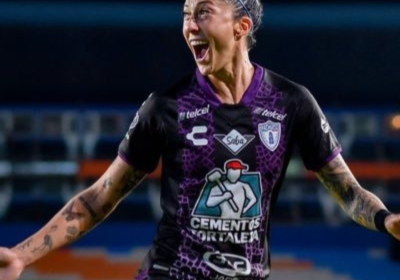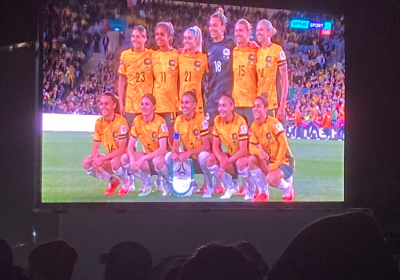Gary Neville argues that beneath the glamourous sheen of English Premier League football, the game is rotten, and the growing influence of the biggest teams is leaving fans out of pocket and smaller clubs clinging to survival. Alex Salmon reviews.
soccer
While Luis Rubiales' resignation is a victory for the campaign against sexual harassment in Spanish sport, the case continues to shake up Spanish society, reports Dick Nichols.
With the hopes of a nation delicately balanced, the Matildas took on the Republic of Ireland, in front of a record crowd of 75,784, in their opening game of the Women’s World Cup. Leo Earle takes a look behind the tournament.
The European Super League did not seek to grow the game, but rather promised a heavily marketised and Americanised product saturated with cash at the expense of traditions, writes Leo Crnogorcevic.
Diego Maradona will always be remembered as the football god who played on the side of the poor, writes Federico Fuentes.
The Club: How the Premier League Became the Richest, Most Disruptive Business in Sport|
Joshua Robinson & Jonathan Clegg
John Murray Publishing, 2019
338 pages
If football is a simple game (get the ball, pass the ball), then the football business is even simpler (buy the best players, bank the profits).
The Billonaires’ Club: The Unstoppable Rise of Football’s Super-Rich Owners
James Montague
Bloomsbury, 2017
330 pages
At this stage of the 2017 English Premier League (EPL) season, it looks like one of the two Manchester teams will win the championship — and with barely a Mancunian between them. Both Manchester United and Manchester City have overseas owners, overseas managers and overseas-dominated player lists.
Women footballers in Australia, playing in the W-League, will receive a sizeable pay rise and improved employment conditions after a landmark collective bargaining agreement announced on September 11 between Football Federation Australia, W-League clubs and the players’ union, the Professional Footballers Australia (PFA).
FIFA, the governing body of world football (soccer), has capitulated once more to intense pressure from the Israeli government. It has removed from the agenda of its upcoming congress the issue of teams from Israel’s illegal settlements on occupied Palestinian land playing in Israel’s national league.
Calls are mounting on FIFA to require Israel’s national league to exclude teams from West Bank settlements or face suspension from the governing body of world football (soccer).
But there are warning signs FIFA may be succumbing to intense pressure to once again give Israel a pass to continue violating Palestinian rights with impunity.
The situation for Palestinian and Arab football (soccer) players in Israel, the West Bank and Gaza has, for some time, been dire.
On one side of Israel’s Apartheid Wall, within the formal borders of Israel, segregated youth teams, racist abuse, and heckling — including charming chants such as “Death to the Arabs” — are frequent. On the other, in the Palestinian territories occupied by Israel since 1967, checkpoint detention, jailings, and the bombing of stadiums have become regular features of what is supposed to be the people’s game.
Given the powerful role that football plays as a point of community cohesion in the West Bank and Gaza, this everyday violence feels like a full-frontal attack on civil society, normalcy and hope.
Fans from Western Sydney Wanderers A-League football team distributed hundreds of rainbow flags to those attending the club’s March 5 match against Adelaide United. The move came after two weeks of controversy sparked by a banner raised by some Wanderers fans during their team’s 1-0 victory over cross-town rivals Sydney FC, which was widely condemned in the media and among many fans for being homophobic.
- Page 1
- Next page











